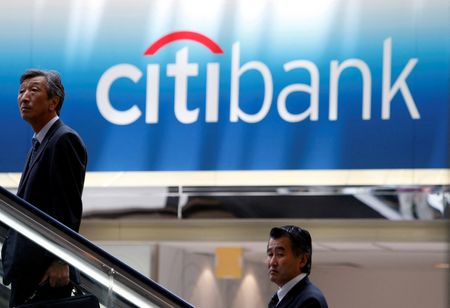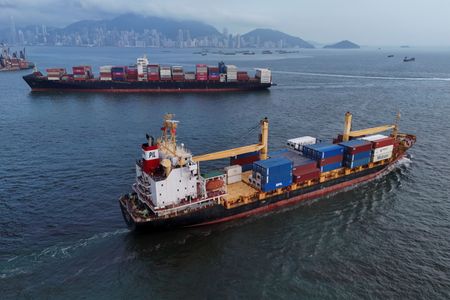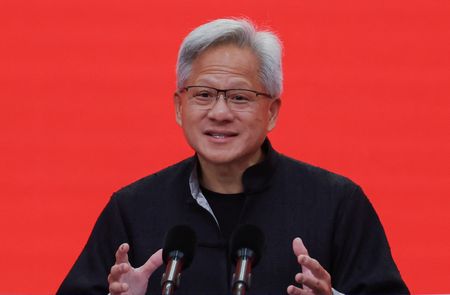By Kane Wu and Scott Murdoch
HONG KONG/SYDNEY (Reuters) -Chinese companies, mainly those in the tech sector, are accelerating plans to raise funds offshore, tapping into a rebound in investor sentiment fueled by hopes of Beijing’s support for private firms and the popularity of DeepSeek, bankers said.
In a sign of the pickup in offshore equity sale momentum, two tech companies raised $500 million in total this week alone, and bankers and lawyers said a growing list of firms is preparing to launch offshore equity sales in the coming months.
A pickup will reverse the last few years’ sluggish offshore fundraising activity induced by faltering economic growth and a regulatory crackdown on private enterprises, and will give the Chinese companies much-needed access to capital for growth.
Chinese video streaming platform iQIYI on Thursday raised $350 million in an upsized five-year convertible bond, a day after Hong Kong-listed auto chip maker Black Sesame raised $160 million via private placement of shares.
Those two deals came just a couple of days after a meeting between President Xi Jinping and tech business leaders including Alibaba founder Jack Ma, seen as a sign that Beijing is softening its approach to its internet giants.
Xi’s meeting with the business leaders and the meteoric rise of AI startup DeepSeek could help China tech companies regain traction in international capital markets, said Li He, a partner at law firm Davis Polk, who advises on IPOs.
“We’re already seeing a solid pipeline of IPO candidates, particularly in tech, healthcare, and consumer sectors,” he said.
Besides secondary market deals, IPOs by Chinese companies, particularly in Hong Kong, are also expected to pick up pace in the coming years – 29 new listing applications were filed in Hong Kong in January versus 15 in the same period last year.
Offshore equity capital markets deals involving Chinese companies in general totalled $3.3 billion so far this year, more than six times the amount in the same period last year, Dealogic data showed.
The jump comes on the back of a market rally, with the main Hong Kong index rising 12.55% this year.
“On the back of the rally, we expect to see more capital markets fundraising activities in the coming months, as well as acceleration of IPO execution in 2025,” said UBS Asia vice-chair of global banking Mandy Zhu.
INVESTOR INTEREST
Offshore Chinese listing hopefuls include battery giant CATL, which this month filed for a Hong Kong listing that could raise at least $5 billion, frozen food company Anjoy Foods and online health services firm WeDoctor.
“Global investor interest in China tech is getting stronger. Valuations have been very attractive compared to other markets,” said Ho-yin Lee, head of Asia technology and communications at Citigroup.
Underscoring the investor interest, iQIYI on Thursday bumped up its convertible bond offering to $350 million from $300 million after receiving interest from over 50 institutions, according to bankers involved in the offering.
Besides the public market activity, the rise of DeepSeek has also propelled Chinese venture capital firms to scout for investments in AI-enabled applications, investors and advisers said.
A number of Chinese funds and tech firms have in recent weeks reached out to DeepSeek, whose AI breakthrough has been described as a “Sputnik moment” for the country, said three tech investors familiar with the matter and media reports.
DeepSeek, whose founder Liang Wenfeng was among those who met Xi on Monday, however has not decided on any fundraising plan, said the three sources, declining to be named as they were not authorised to speak to the media.
DeepSeek did not respond to Reuters request for comment.
“In the next two years, AI-enabled applications and robotics will be a big focus for venture investors, who are inspired by the success of DeepSeek,” said Ming Jin, managing partner at advisory firm Cygnus Equity.
Dollar venture funds are, however, unlikely to return soon due to heightened Sino-U.S. tensions and increased regulatory scrutiny of private investments in companies by both countries, analysts said.
“U.S. institutional money investors are under federal, state-level and unofficial pressure to avoid allocating capital to public and private Chinese assets,” Gavekal Dragonomics said in a report published on Tuesday.
“While a few high-profile liquidity events could change some minds, the direction of travel is unlikely to change for the foreseeable future.”
(Reporting by Kane Wu and Selena Li in Hong Kong and Scott Murdoch in Sydney; additional reporting by Li Gu in Shanghai; graphics by Yantoultra Ngui in Singapore; Editing by Sumeet Chatterjee and Stephen Coates)











